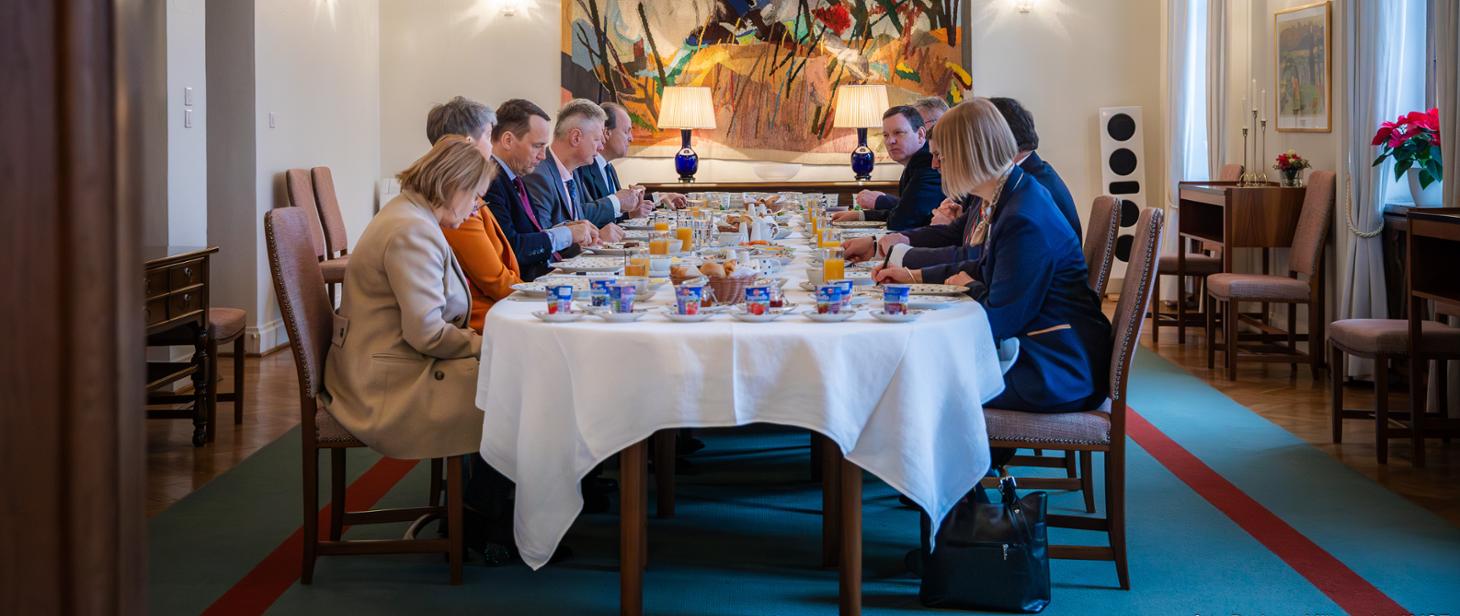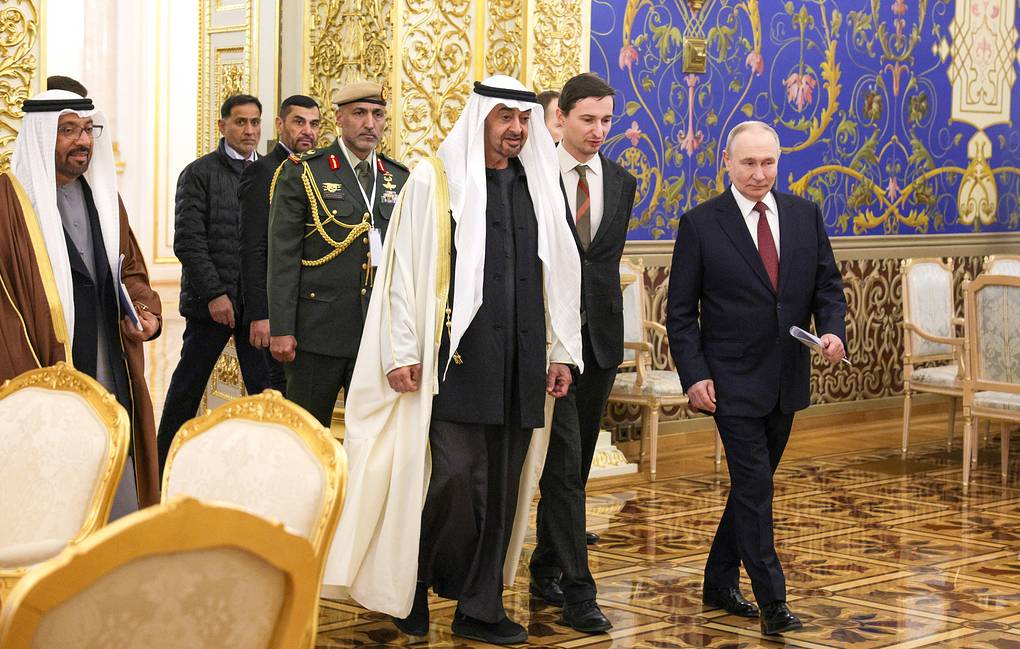Tide of Support for Islamic State in the North Caucasus Causes Alarm in Moscow
Tide of Support for Islamic State in the North Caucasus Causes Alarm in Moscow
Russia watchers can hardly fail to notice that Moscow often reacts to events in the North Caucasus after a significant time lag. Several amirs of the Caucasus Emirate pledged allegiance to the so-called Islamic State back in November–December 2014. Russia’s Federal Security Service (FSB), however, recently made a statement about this development as if it had just happened. “Some field commanders of the Caucasus Emirate have even taken a pledge of allegiance to the Islamic State, and this is a very disturbing trend,” said FSB First Deputy Director Sergei Smirnov, in early April 2015 (Regnum.ru, April 10).
After a meeting of the Council of the Regional Antiterrorist Structure of the Shanghai Cooperation Organization (SCO) in Tashkent, Uzbekistan, Russian Army General Sergei Smirnov said the Islamic State presented a real threat to Russia (Rg.ru, April 10). He said that participants in the SCO meeting reviewed measures to counter the Islamic State, including the exchange of information about the movements of suspected individuals (RIA Novosti, April 10). The law enforcement agencies of Russia and Uzbekistan have long cooperated on curbing the activities of the Hizb ut-Tahrir organization (Openli.ru, April 10). The Russian authorities, along with the Uzbek authorities, have equated the organization with al-Qaeda, even though the two organizations are completely different from each other, both substantively and in terms of their visions of the future of the Islamic world.
The Russian security services view the Islamic State’s infiltration of other organizations like the Caucasus Emirate as a dangerous development (Gazeta.ru, April 10). From Smirnov’s comments it is clear that the Russian security services believe the Islamic State could take over the Caucasus Emirate by converting the latter’s structures into its own (Rulife.ru, April 10). Moreover, the Russians think that the Islamic State regards the Caucasus Emirate as an ally (Forbes.ru, April 10), which is incorrect: the Islamic State does not recognize anyone as an ally or an affiliate. It believes all other organizations must become part of the Islamic State. In reality, the Caucasus Emirate is internally divided because some militants disagree with its current leadership. After Caucasus Emirate leader Abu Ali Muhammad (Aliaskhab Kebekov) banned attacks on civilians and female suicide bombers, more radical forces in the organization rebelled against him. The radicals want more drastic attacks against the Russians in the North Caucasus as well as other parts of Russia. Unlike 2010, when several Chechen commanders attempted to unseat the then-leader of the Caucasus Emirate, Doku Umarov (see EDM, August 12, 2010), the existing top- and middle-level commanders of the organization today have an alternative organization to join. The significant difference between the Islamic State and the Caucasus Emirate is that the followers of the Islamic State are more radical. They target civilians, including Muslims. Anyone who is not with them is their enemy (Kavkazsky Uzel, April 10).
The number of Russian citizens fighting in the ranks of the Islamic State is estimated to be between 1,700 and 3,000. An estimated 300 Tajiks may also belong to the Islamic State. The International Crisis Group, for example, estimates that up to 4,000 citizens of Central Asian states—Kyrgyzstan, Uzbekistan, Tajikistan, Kazakhstan and Turkmenistan—may have joined the Islamic State organization. As FSB Deputy Director Sergei Smirnov correctly noted, “this is only what we know” (Interfax, April 10). The actual number of people fighting in the ranks of the Islamic State is apparently believed to be at a significantly higher level than the estimate given during the SCO meeting. Citizens of former Soviet republics make up a significant percentage of the Islamic State members (Newsru.com, April 10).
Officials in the Kremlin have started to understand the real danger of the Islamic State not after militants started pledging allegiance to the Islamic State, but when militants started to return to Russia from the fighting in the Middle East. The returnees were detected not at the border but after they had already entered the country, which indicates that Russia does not know its enemies well. Russian authorities have failed to compile a list of people fighting under the auspices of the Islamic State or uncover their plans to return to Russia. They also do not know whether militants who have returned to Russia have done so because they were disappointed with the Islamic State or because they plan to establish new cells inside Russia. “We should jointly [within the SCO] work out concrete steps to counter the threat,” Smirnov stated (interfax.ru, April 10).
According to Akhmet Yarlykapov, a Russian expert on Islam in the North Caucasus, the threat of militants returning to Russia from the Middle East is real and could threaten the security of the country and region. The Islamic State’s terrorism is quite different from that of the Caucasus Emirate. While the Caucasus Emirate specializes in attacks against government forces, the Islamic State’s terrorism is an all-out and an utterly cruel type of violence (Kavkazsky Uzel, April 10).
The visit of FSB Director Alexander Bortnikov to Washington in February (Newsru.com, February 20), the visit of Kremlin Security Council Secretary Nikolai Patrushev to the North Caucasus the following month (Rbc.ru, March 11) and the recent visit of Sergei Smirnov to Tashkent all indicate that the Russian government is looking for a solution to the problem that the Islamic State organization poses for Moscow. As an ally of Bashar al-Assad, Russia isolated itself from all possible allies among the armed groups in the Middle East and from those countries that oppose the al-Assad regime. Moscow, therefore, is, forced to look for allies against a cruel and merciless enemy, and that enemy has now become the Islamic State.


